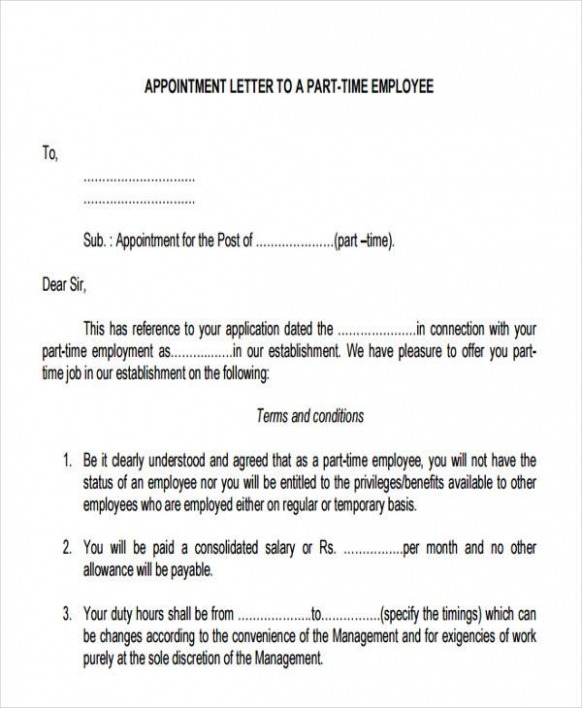Part Time Offer Letter Template Taxpayers experiencing tax financial obligation troubles hardly ever compare the internal revenue service offer in compromise with the Chapter 13 personal bankruptcy. Frequently, the Phase 13 will supply a extra certain remedy for the taxpayer to solve tax financial debt. This short article analyzes the loved one advantages of both the deal in compromise as well as Chapter 13.

An offer in compromise may be one of the most marketed tax obligation remedy. You can not listen to radio or see television without being bombarded by ads to settle your tax obligation financial obligation. Frequently the ads proclaim that the IRS has actually introduced that compassion in the collection of the tax obligation financial debt exists for a restricted time. The depressing truth is that the kindness news by the IRS was frequently for other trouble location, such as tax obligation sanctuaries. The IRS rejects roughly 85 percent of all deals in concession filed because of doubt as to collectibility. Offers in compromise are typically submitted due to the fact that the taxpayer thinks the tax financial obligation can not be paid, Doubt as to Collectibility is one of the most typical kind of deal in concession. Other types of offers in compromise are outside the range of this short article.
The benefit of the deal in compromise is that the tax obligation obligations, consisting of the relevant charges and passion, are minimized to the amount the internal revenue service and the taxpayer agree can be paid. Both events need to accept the regards to the deal in compromise. The deal in compromise is a contract in between the internal revenue service as well as the taxpayer. The regards to the agreement can be imposed versus the taxpayer as well as the internal revenue service.

Acceptance of the deal in concession happens when the IRS thinks that the offer goes to least as much as could be gathered by the internal revenue service over the 10 year life of the statute of limitations. The internal revenue service will certainly reject an offer that is for a lesser amount than it might otherwise gather.
The IRS uses a consistent set of economic criteria that are not versatile in both the evaluation of the quantity paid monthly in an installation agreement and in an deal in compromise. These criteria restrict the expenses for living that the taxpayer can assert are necessary for living. The criteria consist of food, housing and energies, transport, and also expense health expense. The standards may create drastic issues for a taxpayer with a reasonably higher standard of living. Business expenses are not influenced by the criteria.
The analysis of the minimal offer in concession that will make the deal processable is the equity in the taxpayer’s properties plus the amount that could be paid in an installation arrangement over a specified amount of time. The duration of the future month-to-month settlements thought about by the IRS depends upon how the offer will certainly be paid by the taxpayer. The IRS wants 48 months of regular monthly repayment if the taxpayer offers a round figure. The internal revenue service wants 60 months of monthly repayment if the offer is to be paid in a short-term arrangement of two years or less. However, the IRS will certainly think about factual issues such as retirement as well as health of the taxpayer in reducing the period of the multiplier.


